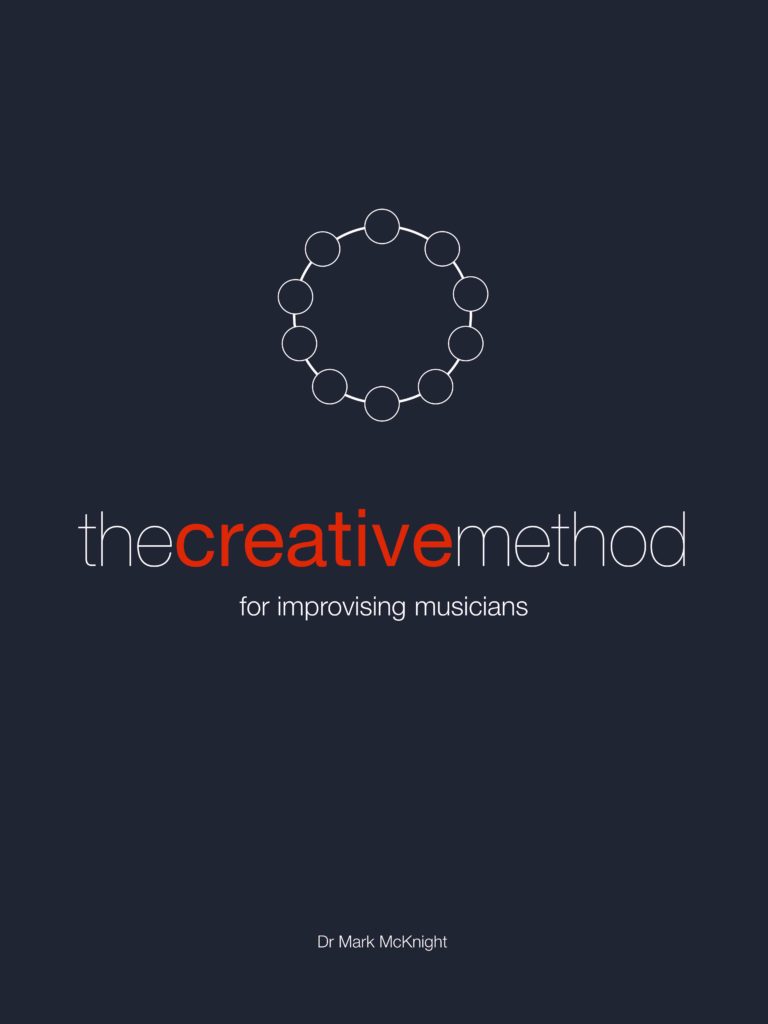
The Creative Method is a eBook & audio bundle that I purchased back in 2016.
At that time, Dr Mark McKnight was really active posting blogposts, videos, lessons and various transcriptions online. In fact his interview with Ben Eunson was one of the earliest breakdown & analysis of Ben’s guitar style that I saw up to that point.
Anyway, recently I thought about this eBook & decided to finally write my thoughts about it.
What is The Creative Method?
Well, according to Mark it’s:
A clear and easy to follow 10-step method for the development of your unique improvisational voice.
What do I think about it?
I feel that it’s basically a practice method to solidify certain technical & musical approaches into your playing.
It’s kind of reminds me of the way former Berklee professor Hal Crook approached improvisation & the study of improvisation, although Mark’s approach adds the guitaristic point of view.
The book shows how to go through the 10 steps of The Creative Method. Then at the end of the book, we get an appendix which shows the full version of how one could extend the practice routine to completion.
As Mark describes it:
Applicable to all styles, genres and melodic instruments, TCM guides you to:
- Understand your aesthetic goals.
- Target these with musically focused technical exercises and etudes.
- Quickly integrate your new ideas to improvised performance.
For me, I particularly like how Mark views the different ways to transpose musical ideas on the guitar… and how he organized it into logical steps for practice.
Although I didn’t actually fully adapt The Creative Method after purchasing it years ago, I did apply parts of the thinking behind Mark’s approach. That was helpful.
All in all, this is a good book for the serious jazz guitarist who wants to understand (or discover) different perspectives that might be useful for more effective practicing. If you like how Mark sounds, this eBook is a small investment that is worth making to improve your guitar practice approach.
Pros: Compact, well thought out method for practicing & improving jazz improvisational melodic vocabulary and technique.
Cons: Some players may feel that they need more examples or explanation to fully understand the method.
TLDR: If you want structure in your jazz guitar practice sessions AND you like contemporary jazz guitarists who play with a more legato approach (Ben Eunson, Jonathan Kreisberg, Hristo Vitchev), then this book might be a good book to check out.
Get the eBook & audio eBundle here: http://mmckmusic.com/the-creative-method/#products-2
[Review Archive]
I wrote a lot of other book, course and video reviews too.
Check out the rest here:
[Read more reviews]
[Submissions for Review Consideration]
- Are you an author who wrote a jazz, guitar or music book?
- Have you created a DVD or an online video course or subscription based website?
- Would you like me to review your book/course?
Please send me a message at azsamad3 at gmail.com with:
For courses: a link to the course/video/product + access info etc.
For books: a link to the book (Dropbox) or PDF attachment (if it’s small) for review consideration.
Depending on whether I dig the book/course, I’ll let you know if I do plan to review it!
I cannot guarantee a review for every submission & if I’m not too into it, I may opt not to review it. I mean, it’s better to get a good review that for me to write a bad review just because it’s not a match for the kind of stuff I dig right? :p
NOTE: All reviews reflect my honest personal opinion so be aware that I will point out both cool Pros and Cons that I see in the work. You dig?